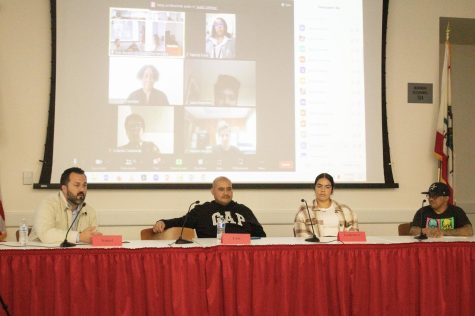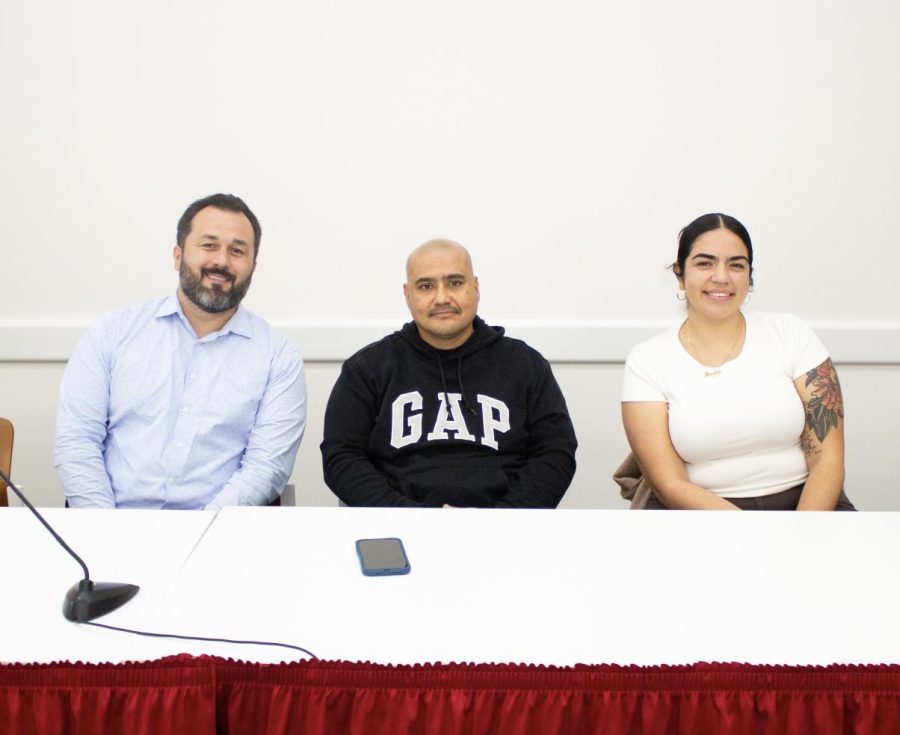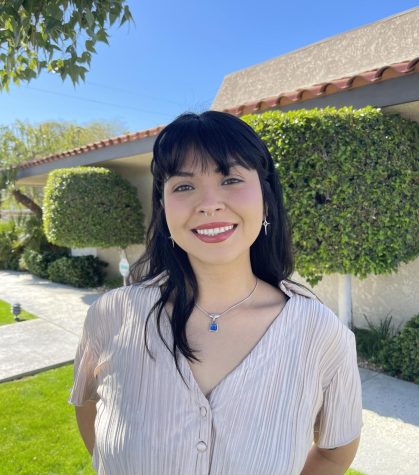Underground Scholars share about being formally incarcerated
November 23, 2022
Scholars lead a panel discussion for formerly incarcerated students on Nov. 8 at Cravens Student Services Center.
UC Riverside’s Underground Scholars Academic Program (RUS) recruits and advocates for formerly incarcerated students, including system-impacted students who are legally, economically, and family impacted negatively by the incarceration of a relative or a close one. System impact also pertains to people who are arrested or convicted without incarceration. Director, Ismael Dávila, was also formally incarcerated, sharing barriers he faced after release. “Education is transformational,” Dávila says, as he introduces UCR students Genevieve Silva, and Luis Miranda, and COD student Manny Dublin.

Sociology majors, Miranda and Silva, continued their higher education while incarcerated, and art design major Doublin, following his release. Pursuing higher education while incarcerated is possible, however, students explain how there are requirements enforced in order to do so, such as needing a high school diploma, no write-ups, and testing, just one of the many barriers that incarcerated students face.
The students talk about what it was like taking classes while incarcerated. Miranda was fascinated by structural functionalism theory studying sociology and seeing through different lenses. Silva gained a sense of freedom through the class, allowing time out of her cell. As for Doublin, there were no educational programs, having him seek outside sources for books. A common factor amongst the students is that they envisioned more for themselves, leading them to pursue their education.
Coming out of incarceration, students reintegrated into society, rebuilding relationships and trying to maintain stability. Dávila describes the process as an onion, containing layers in learning how to re-enter their communities. A common disadvantage formerly incarcerated students deal with is housing and employment. Applying for housing was difficult for Miranda, paying for background checks he already knew would disqualify him from receiving grants that would cover rent. Students have no credit or work experience coming out of prison which landlords look at, adding more reason to turn them away. Doublin explains how he’s perceived negatively on paper due to his time incarcerated, therefore holding him back from applying for housing and jobs. Formerly incarcerated students have additional obstacles to get through due to their past, adding to barriers common college students already face.

The students managed to discover resources at their colleges to help them navigate through their higher education. All three students found a support system within their colleges, essentially their driving force. Dávila adds on, “When students have more positive college experiences there is a higher chance of graduating, compared to negative experiences that can throw students off course.” Their resilience comes from their never-ending hurdles in life, and above all, it has developed them into the scholars they are today. With the assistance of services and the community, there is an opportunity to create a future for students who are automatically confronted with societal challenges.


